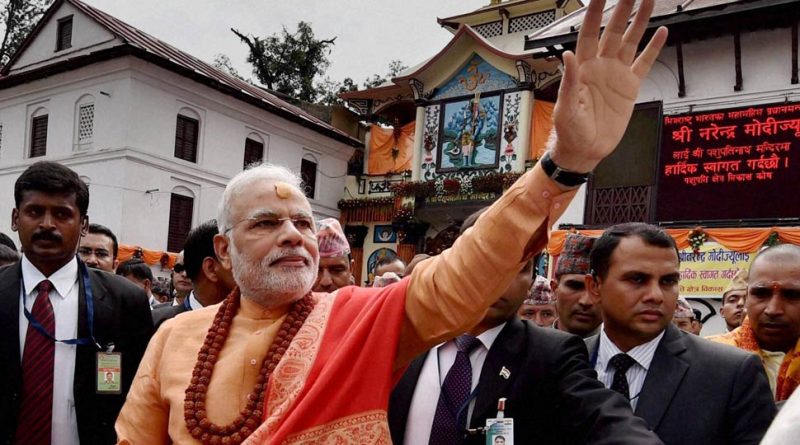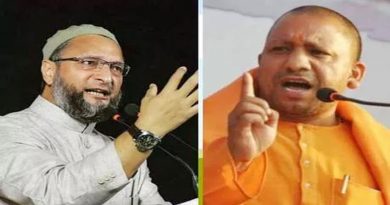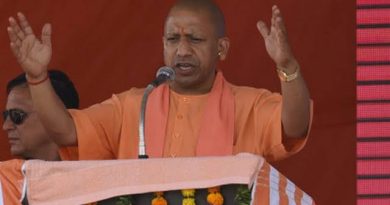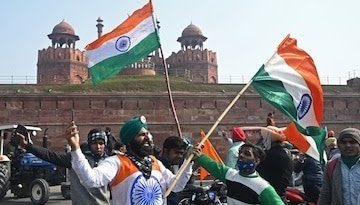| |
|---|
News Desk: The Union Government of India is currently controlled by the Bharatiya Janata Party (BJP), which proclaims that it follows the ideology of Hindutva. This was sanctified by the Supreme Court in a judgment in which it termed Hinduism ‘a way of life’; relying on this judgment, another judgment of the apex court deemed referring to ‘Hindutva’ or ‘Hinduism’ in speeches during electoral canvassing as acceptable.

What does Hindutva mean? This, their lordships did not tell us; the latter judgment says “no precise meaning can be ascribed to the terms ‘Hindu’, ‘Hindutva’ and ‘Hinduism’; and no meaning in the abstract can confine it to the narrow limits of religion alone, excluding the content of Indian culture and heritage”.
Tracing the meaning and origins of Hindutva
Hindutva is exclusionary as an ideology, going by the definition provided by V.D. Savarkar, who wrote about it in his booklet Essentials of Hindutva published in the 1920s. Savarkar examined the origin of the words ‘India’ and ‘Hindu’, and concluded that ‘Indian’ means ‘Hindu’. Muslims and Christians, by virtue of being non-Hindus, cannot, as per his definition, be authentic Indians.
Savarkar made up a convoluted formula for arriving here — requiring faiths to have their places of worship inside India to qualify. Strangely, his assessment includes Mecca, but not Ajmer.
The Rashtriya Swayamsewak Sangh (RSS) was founded in Nagpur in 1925 because they felt that Muslims had resisted to rioting and not become victimised. These are the words of Hindu Mahasabha leader B.S. Moonje, who was RSS founder K.B. Hedgewar’s political mentor: “Of out 1.5 lakh population of Nagpur, Muslims are only 20,000. But still we feel insecure. Muslims are never afraid of 1.3 lakh Hindus.” According to him, this was a bad thing and for this to change Hindus had to be united. As per this logic, they did not have to unite to reform their faith; they had to unite to oppose Muslims. This is why the RSS was formed and it was why its members received paramilitary training.
The absence of coherent Hindutva governance principles
Because governance had nothing to do with the impulse that created the RSS, it remained unimportant to the BJP as well. It has had no consistency in its policies through its history.
For 20 years, till 1973 under Atal Bihari Vajpayee, the BJP’s political predecessor, the Bharatiya Jana Sangh, promised that if it would be voted to power, the maximum expendable income of all Indians would be limited to Rs. 2,000 per month, and everything over that would be acquired by the State. The minimum income would be Rs. 100 a month, which would, over time, be raised to Rs. 200 a month so that an optimal ratio of 10:1 could be arrived at. It wanted to limit the size of houses constructed in urban areas to no more than 1000 square meters.
It may be recalled that it was under Vajpayee’s Prime Ministership that the BJP-led Union Government not only continued but deepened economic liberalisation and accelerated privatisation in the late 1990s and early 2000s. Narendra Modi was seen by many of his admirers as a free-market evangelist, but this is the same party that, not too long ago espoused socialist policies. There is no danger of contradiction or inconsistency in this regard because this is not what Hindutva is about. Its meaning, from Savarkar to the BJP, has been the exclusion of Muslims; everything else is incidental.
What has it meant to have the BJP in government?
The Jana Sangh never secured more than a single digit of the national vote share percentage, so it did not have to seriously think of policies at any depth because there was no chance it would be in office. It may surprise some people to know that the first BJP government in any state came only in 1990, in Rajasthan. Before that, it shared power in some instances, including at the Centre after the Emergency, in coalitions with other parties.
The tipping point was, of course, the picking up by L.K. Advani of the Ayodhya issue and campaigning on it. This was a violation of the BJP’s own constitution which, it may again surprise readers to know, requires members to take an oath swearing by secularism and socialism.
Over 2,000 Indians died in the wake of the Ram Temple campaign and the demolition of the Babri Mosque, but the BJP profited: its vote share doubled, and then doubled again. In the first Parliamentary election after the mosque’s destruction, it came to power at the Centre as the party with the most seats in 1996. The history of what happened after that is recent, and there is no particular benefit in going through it here.
What is more interesting is to see how Hindutva has manifested itself in power thereon. The economic space available for any Union Government is limited. India is a poor nation where those earning a few thousand rupees a month are not considered poor.
Hundreds of millions live on an income in that range, and hundreds of millions more live on less than that.
Financial resources are limited, and therefore policies are also limited. If we were to exclude some of the more eccentric policy decisions that Prime Minister Modi’s government has taken as one-off events, such as demonetisation, broadly speaking, they have continued with what came before them because there is not much space and because, at the cost of repetition, there is no Hindutva economic ideology.
Where Hindutva has manifested itself fully is where it was always intended to manifest: against minorities, and especially against Muslims. This is evident with its most recent examples.
Laws targeting Muslims
The BJP-ruled states of Uttarakhand, Uttar Pradesh, Madhya Pradesh, Gujarat and Haryana have recently passed, or have announced that they are planning to pass, so-called ‘love jihad’ laws which are essentially meant to ban Hindu women from marrying into Muslim families. Why such a law was required has not been explained: there is no data that either the states or the Union Government have to show the need for such a law. But it has been imposed as a continuation of the harassment and humiliation that India is subjecting its Muslim citizens to in our time.
As the Chief Minister of Gujarat and in the run-up to the 2014 Lok Sabha election, Modi often raised the issue of cow protection in his public addresses and election rallies. After BJP’s ascension to power at the centre in 2014, cow slaughter and beef consumption were elevated as hot button political issues, as several states across the country that was ruled by the BJP ended up enacting laws banning the slaughter of cows and even possession of cow meat. In a part of the world where the rule of law is already low, the State was virtually instigating vigilante violence, and it came as expected.
India was introduced to a new category of violence, beef lynching, and dozens were harmed, including many who were murdered for being accused of carrying beef. 97% of the beef lynching fatalities in our country have been recorded only after BJP came to power in 2014.
In 2019, the BJP-majority Parliament passed the Citizenship Amendment Act (CAA) which gave asylum to refugees from certain countries provided they were not Muslim.
This was, according to the Union Home Minister Amit Shah, one part of a pincer, the other being a proposed National Register of Citizens (NRC). This led to widespread speculation that the BJP’s design was to first exclude non-Muslims from having to prove citizenship through the CAA, and then to, through the NRC, ask effectively only Muslims to prove their citizenship. This was the stated chronology, as per Shah.
In the cities of Modi and Shah’s home state of Gujarat, Muslims cannot buy property outside of their ghettoes. Buyers and sellers of property must apply for permission on affidavit revealing their religion. The state government controls what the make-up of particular neighbourhoods is, and regulated the entry of Muslims into those areas.
Foreigners can lease and purchase property in Gujarat, but Gujarati Muslims cannot. This is all courtesy a legislation popularly known as the Disturbed Areas Act, and its provisions have been progressively tightened to limit Muslims into certain localities and make the purchase of property by them elsewhere impossible.
The NRC calamity in Assam
BJP-ruled Assam concluded its NRC after a process that took a number of years in 2019, which left out 19 lakh of its residents, which is roughly one in every 200 of its population, out of citizenship. These people would have to appeal before Foreigners Tribunals and prove their citizenship by furnishing documents showing that they or their ancestors were Indian citizens before March 1971.
Those who could not were jailed in detention camps; men separated from women, and children under six jailed with the women. Children who turned six are sent out on their own to fend for themselves. If you have not heard or read about this, it is because our news media has not been concerned about this issue, and many in it actually approve of what has been done to these people in Assam.
There are other horrors in this story that need to be understood to realise the full scale of the tragedy. The government entertains anonymous complaints about someone being a foreigner. The person making such an accusation does not have to appear in the kangaroo courts: even sending an anonymous email to the government accusing someone of being Bangladeshi or Pakistani, and providing their address, is sufficient to trigger the NRC process in Assam.
The ‘judges’ in the Foreigners Tribunals are non-permanent employees on fixed-term contracts. The BJP government only extends their contracts if they mark a high number of people as foreigners. How do we know this? The BJP government revealed this in an affidavit filed before the Gauhati High Court. This way, the judges in these Tribunals are incentivised to reject as many applications as possible.
The Tribunals can also mark someone as a foreigner in an ex parte manner; in other words, if the accused person does not show up on the assigned date before the Tribunal for some reason to defend themselves, they can be declared a foreigner.
Civil rights such as the right to vote or to own property, driver’s licenses, passports, and other ID proof obviously become invalid once one is determined to be a foreigner and jailed. This is what we have done in Assam, and this is what the Union Home Minister has publicly endorsed for the rest of us all over India.
I could write about Kashmir and several other parts of the country but that can wait. Human rights have certainly waited there a long time: our Parliament was told on 1st January 2018 by the Union Ministry of Defence that none of the 50 cases that the Jammu and Kashmir Government had filed for sanction of prosecution against our armed forces personnel for murder, torture, kidnap and rape since 1989 had received approval for prosecution.
The larger point is, and perhaps you know this, but it is still important that it be said: On the issues that we have looked at above, India has reversed the burden of proof. We have inverted the common law cornerstone of ‘innocent until proven guilty’. Once accused, one has to prove one’s innocence conclusively or be found guilty. If accused of being a foreigner, you have to prove your citizenship. If accused of having consumed beef, you have to prove that you consumed some other acceptable meat. If accused of being a victim of ‘love jihad’, you have to prove that you married your Muslim husband out of your own will.
If I am found next to a corpse with a smoking gun in my hand, it is the duty of the State to prove that I committed murder. However, in Gujarat a man was sentenced to ten years of imprisonment in 2019 for failing to prove that the meat he served at his daughter’s wedding weeks earlier was not beef. An embarrassed high court let him off using ‘judicial discretion’.
The Unlawful Activities (Prevention) Act, under which several activists and journalists have been jailed over the last few years, requires the accused to prove their innocence even to secure bail. It is the husband that the woman marries who has to prove that he did not coerce her into converting and marrying him; the testimony of the adult woman does not count. This is what is happening in today’s India. We must repeatedly tell ourselves that this is not normal. It is new and it is unprecedented.
This is what Hindutva is, this is what it brings to us when in power, and this is what it will produce more of as it remains in power.




